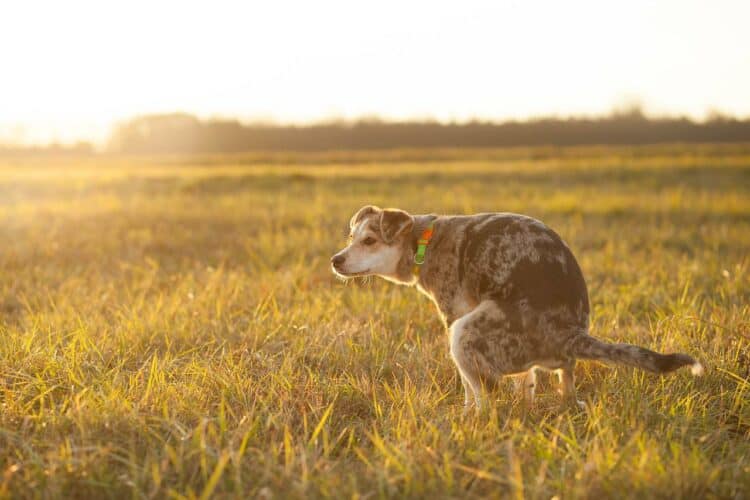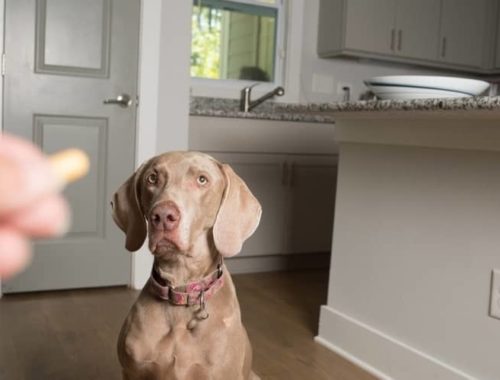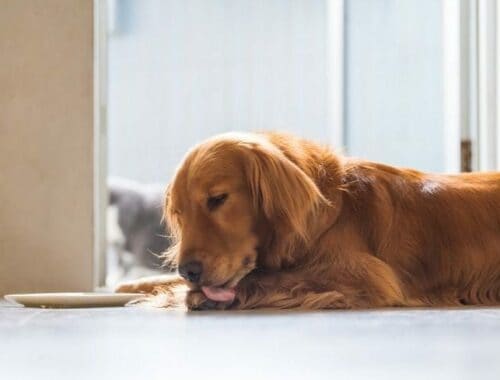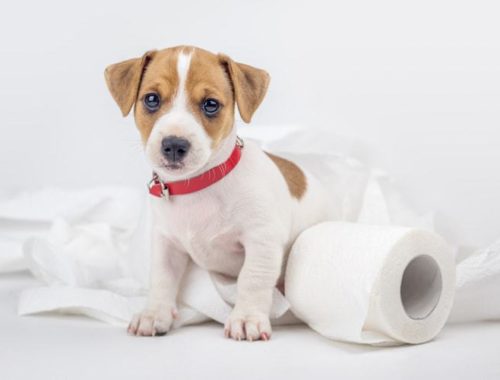All dog owners have experienced the agony of waking up or coming home to the foul smell of diarrhea in your home. The range of emotions usually progresses from concern for your dog, to frustration about cleaning, then ultimately to worry that it will continue.
The good news is, many times, uncomplicated diarrhea can be resolved without veterinary intervention – simply by understanding the cause and following simple treatment steps:
Causes of Diarrhea
There are many reasons why a dog develops diarrhea, but most of the time, the inciting cause is not determined. Below is a list of common factors that can disrupt the health of the gastrointestinal tract:
- Viral or bacterial infection (an infectious agent picked up in the environment)
- Parasitic infection (parasite eggs in the grass or infectious agent in water)
- Diet change (rapid change, introduction of new food or table scraps)
- Dietary indiscretion (garbage raid or counter surf)
This list summarizes common causes, but recognize that if diarrhea recurs, it can be a symptom of a larger issue involving an organ system, allergy or dietary intolerance, or gastrointestinal disease.
Vomiting may also be noted and may give clues about the underlying cause and the seriousness of the syndrome. Vomiting can be seen with viral and bacterial infections, diet change and indiscretion. Infection with roundworms can also cause vomiting, especially in puppies or dogs not on monthly heartworm prevention. These worms often appear in the stool and vomit of infected dogs and look like spaghetti noodles.

Treatment of Diarrhea
Some cases of diarrhea can be successfully treated at home. Generally, if your dog is alert, active and willing to eat, home management is advised. A home-cooked meal of boiled chicken breasts and steamed or boiled white rice is easy to digest and can help reset the gastrointestinal tract. Make sure you use plain chicken breasts with no skin, and do not add any oil or salt to the meal. Keep water available.
Home treatment is not appropriate in all cases. If your dog is straining every few minutes, veterinary treatment can bring rapid relief. Besides that, check the following list to see if you need to seek veterinary intervention.
- Refusal to eat for 24 hours
- Development of additional symptoms, such as lethargy or vomiting
- Diarrhea continues for longer than 24 hours
- More than one episode in a puppy less than 20 weeks of age
Even with veterinary involvement, a bland diet for two days is usually helpful. When reintroducing the normal diet after resolution of the diarrhea, add the regular food gradually over three meals to allow your dog to become accustomed to it.

Prevention of Diarrhea
A single episode of diarrhea does not warrant a permanent change in diet. However, recurring diarrhea needs to be investigated by you and your veterinarian.
A diet change may be helpful if the food is too rich, too high in protein, or contains an ingredient that is causing an allergy. Grain-free foods are rarely advised, as grain is usually not an allergen, and these diets can even exacerbate loose stool.
The best approach to addressing a chronic or recurring issue is to seek veterinary counsel. Laboratory tests to check organ function and look for parasites are appropriate. Advanced imaging, such as radiographs, ultrasound or endoscopy, may be warranted.
There are some simple things that you can do at home to prevent diarrhea episodes. A daily probiotic, such as Purina FortiFlora, can minimize episodes. Monthly administration of heartworm prevention (ivermectin, milbemycin oxime, moxidectin) can eliminate parasites before they cause significant disease. Keeping the trash out of reach and avoiding table scraps can also reduce the incidence of diarrhea.
Whether you have rare or frequent accidents, we recommend having a good cleaner to keep your carpets and rugs presentable. The Bissel SpotClean is an effective, durable cleaner and can eliminate stains from diarrhea, vomit and urine. If the soiled area needs odor control after cleaning, an enzymatic solution, such as Nature’s Miracle, helps break down and eliminate odors and stains. Good luck and happy, clean tails!
Is your dog having constipation problems? Check out our article on what to give a constipated dog.
Featured Image Credit: Simon Kadula, Shutterstock




























